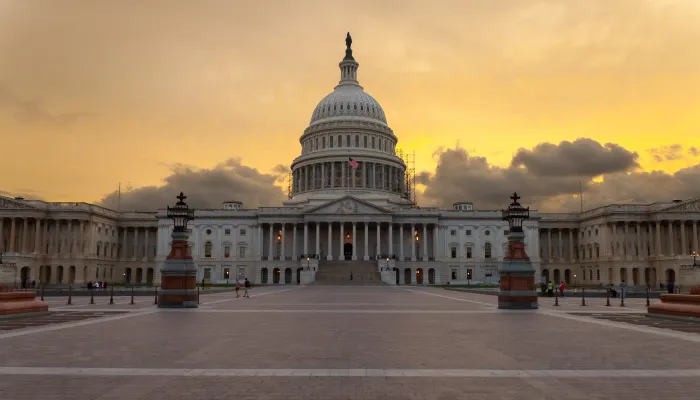Correcting the Record on the TRUST Act
Senate Majority Leader Mitch McConnell (R-KY) yesterday confirmed prior press reports that the Senate majority pandemic response would include the TRUST Act, the Time to Rescue United States Trusts Act.
The TRUST Act would establish bicameral and bipartisan commissions ("rescue committees") to recommend improvements to the solvency of each major, endangered trust fund. The Speaker of the House, the House minority leader, the Senate majority leader, and the Senate minority leader would each appoint three members to each 12-member commission. Recommendations would require support from at least a majority of commission members, including two members of each party, to be considered, and then would still need to pass the House and Senate with a majority and super-majority vote, respectively.
Absent new legislation, we estimate all major trust funds will soon exhaust their reserves: highway spending in 2021, Medicare Hospital Insurance (Part A) in 2024, Social Security Disability Insurance in the 2020s, and Social Security Old Age and Survivors Insurance in 2031. At that point, spending cannot legally exceed incoming revenue. For Social Security Old Age and Survivors Insurance, all recipients would face an immediate and permanent 23 percent benefit cut.
Despite these looming challenges, House Ways and Means Committee Chairman Richard Neal (D-MA) issued a false and misleading statement criticizing the TRUST Act. Below we correct the record. We also addressed these claims on Twitter.
Claim 1: The TRUST Act would lead to cuts "in the middle of a pandemic and recession."
The TRUST Act focuses on securing endangered trust fund programs over the long term. In fact, it is currently being discussed in the context of a package that would dramatically increase near-term deficits to support the economy and address the pandemic.
The members of Congress on each rescue committee could propose delaying or conditioning policy changes on public health or economic recovery benchmarks. In the case of Social Security, for example, a goal of 75-year solvency could include recommendations that phase in, similar to existing proposals.
Claim 2: "The TRUST Act will result in far-reaching cuts to Social Security and Medicare – that is the intention of the bill."
The TRUST Act would not make any direct changes to Social Security and Medicare. It would set up commissions made up of members of Congress that would be charged with restoring the solvency of these important programs. Cost reductions would be on the table, especially reforms to address the overall cost of health care, as would benefit expansions and new revenue.
A commission could even recommend a revenue-only approach, such as Chairman John Larson's (D-CT) Social Security 2100 Act or Rep. Earl Blumenauer's (D-OR) Rebuild America Act. It could also recommend a more balanced or spending focused approach. Any recommendations would need to have bipartisan support.
Claim 3: "The legislation sets up closed-door commissions to fast-track the destruction of these programs."
The TRUST Act aims to set up bipartisan discussions to preserve and strengthen important programs. Commissioners would have a mandate to extend the life of federal trust funds and, where possible, to restore "the solvency of the Federal trust fund established for the critical social contract program during the 75-year period."
Any commission recommendations must be approved by a majority of commissioners, including at least two from each party. Even then, enacting the legislation would require debate and votes in the full House and Senate (60-vote threshold) and the signature of the President.
*****
It is disappointing for these attacks to come when major trust fund programs face imminent insolvency. As depletion dates approach -- next year (highway), within four years (Medicare), or in eleven years (Social Security) -- disruption and uncertainty are only likely to grow.
The TRUST Act would set up bipartisan commissions to rescue each program and recommend policies that lawmakers will eventually need to take up anyway to restore solvency. Whether through the TRUST Act or the normal legislative process, lawmakers will need to act to shore up these trust funds, and fear-mongering of this sort is unhelpful.


